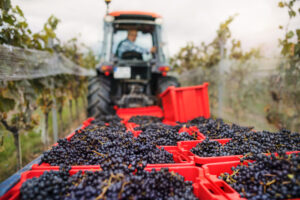In a rush to assuage the grievances of protesting farmers and court rural votes ahead of the impending June EU elections, the European Union has hastily pursued the dilution of environmental safeguards within its agricultural subsidy system.
This expedited maneuver, shrouded in secrecy and devoid of comprehensive assessment, not only deviates from the EU’s typical legislative process but also raises profound concerns about the future of sustainable agriculture and democratic governance within the bloc.
The proposed amendments, strongly endorsed by the European Commission, seek to ease the regulatory burdens imposed on farmers by scaling back environmental obligations tied to public funding. These obligations, commonly referred to as “conditionality,” constitute a cornerstone of the EU’s efforts to promote environmentally sustainable farming practices. However, the Commission’s decision-making process, conducted without adequate consultation or impact assessment, raises serious concerns about transparency, accountability, and the integrity of EU governance.
Running before one can walk
Under the pretext of addressing the urgent demands of protesting farmers, the Commission has expedited the formulation and implementation of these amendments, bypassing customary channels of public consultation and expert review. This expedited approach, while ostensibly aimed at appeasing disgruntled stakeholders, sets a dangerous precedent whereby short-term political expediency takes precedence over long-term environmental sustainability and democratic accountability.
Critics argue that the rushed rollback of green farming rules not only undermines the EU’s commitment to environmental stewardship but also more broadly erodes the democratic foundations upon which the Union is built. By sidelining broader public interests in favor of narrow sectoral concerns, the Commission risks compromising the legitimacy and credibility of EU institutions, thereby undermining the trust and confidence of European citizens in the efficacy and fairness of EU governance.
Amidst the turmoil surrounding the rushed rollback of green farming rules, the EU’s flagship “Farm to Fork” strategy stands at a crossroads. Launched with much fanfare as a transformative blueprint for revolutionizing food production and consumption, the strategy now finds itself mired in uncertainty, with key initiatives stalled by bureaucratic inertia and political indecision.
The biggest losers are the consumers
At the heart of the controversy surrounding the rushed rollback of green farming rules lies the contentious issue of food labeling, epitomized by the embattled Nutri-Score system, the Front of Pack (FOP) label that assigns each food a color-coded grade and a letter from A-E. As the Commission has focused on fighting obesity through labels, it is clear that obesity is a public health crisis that requires a much more thoughtful response. The recent symposium hosted by Competere.eu, featuring MEP Rosa D’Amato of the Greens / EFA group, shed a light on the complexities of obesity. Rose D’Amato reinforced this by saying, “Obesity is not merely a matter of personal health but a societal issue that demands our urgent attention and collective action. Numbers are rising and we urgently need this issue to be tackled.”
Despite its purported aim to empower consumers with nutritional information, Nutri-Score has faced widespread criticism for its oversimplified methodology and often misleading algorithms. Its one-size-fits-all approach clearly fails to capture the complexities of dietary health. The forever changing iterations of the algorithm only succeed in further confusing consumers, foods gain or lose grades often without much rhyme or reason. Moreover, the system has been accused of penalizing traditional dietary patterns, such as those rich in olive oil and nuts, while failing to account for regional variations in dietary preferences and cultural norms.
In recent years, Nutri-Score has faced significant opposition and skepticism from several European countries regarding its efficacy and fairness as a standardized labeling system. While France initially embraced Nutri-Score – largely due to its founder being French – its adoption encountered resistance from neighboring nations like Italy and Germany. Italy, in particular, adamantly opposed Nutri-Score, advocating for a more nuanced approach that acknowledges regional dietary patterns and cultural preferences. This opposition stems from concerns that Nutri-Score’s oversimplified methodology inaccurately portrays the nutritional value of foods, particularly those integral to traditional Mediterranean diets, such as olive oil and nuts. Germany, likewise, voiced apprehensions about the potential adverse ramifications on domestic food producers and the broader food industry, highlighting the need for a balanced approach to food labeling that accounts for diverse dietary traditions and economic considerations.
Romania took a decisive stand against Nutri-Score by banning its use within its borders due to concerns over its inability to accurately inform consumers about the nutritional value of foods. This move underscores the broader discontent among European nations regarding Nutri-Score’s suitability as a comprehensive and equitable labeling system. Additionally, products bearing prestigious designations like Appellation d’Origine Protégée (AOP) and Appellation d’Origine Contrôlée (AOC) are often treated unfairly under the Nutri-Score system, despite their adherence to stringent quality and production standards. This disparity further underscores the inherent limitations and biases of Nutri-Score, which fails to adequately recognize the nutritional nuances inherent in such specialty products.
As the EU grapples with the challenges posed by the rushed rollback of green farming rules and the contentious issue of food labeling, the imperative for informed and inclusive policymaking has never been more urgent. In the face of mounting pressure from various stakeholders and competing interests, the EU must reaffirm its commitment to democratic governance, environmental sustainability, and public health. By engaging in transparent dialogue and considering the diverse needs and perspectives of European citizens, the EU can chart a course towards a more resilient, equitable, and sustainable food system for all. With European elections around the corner, this is more important than ever before.
Read more:
The EU’s Rushed Rollback of Green Farming Rules: A Threat to Sustainability and Democracy

